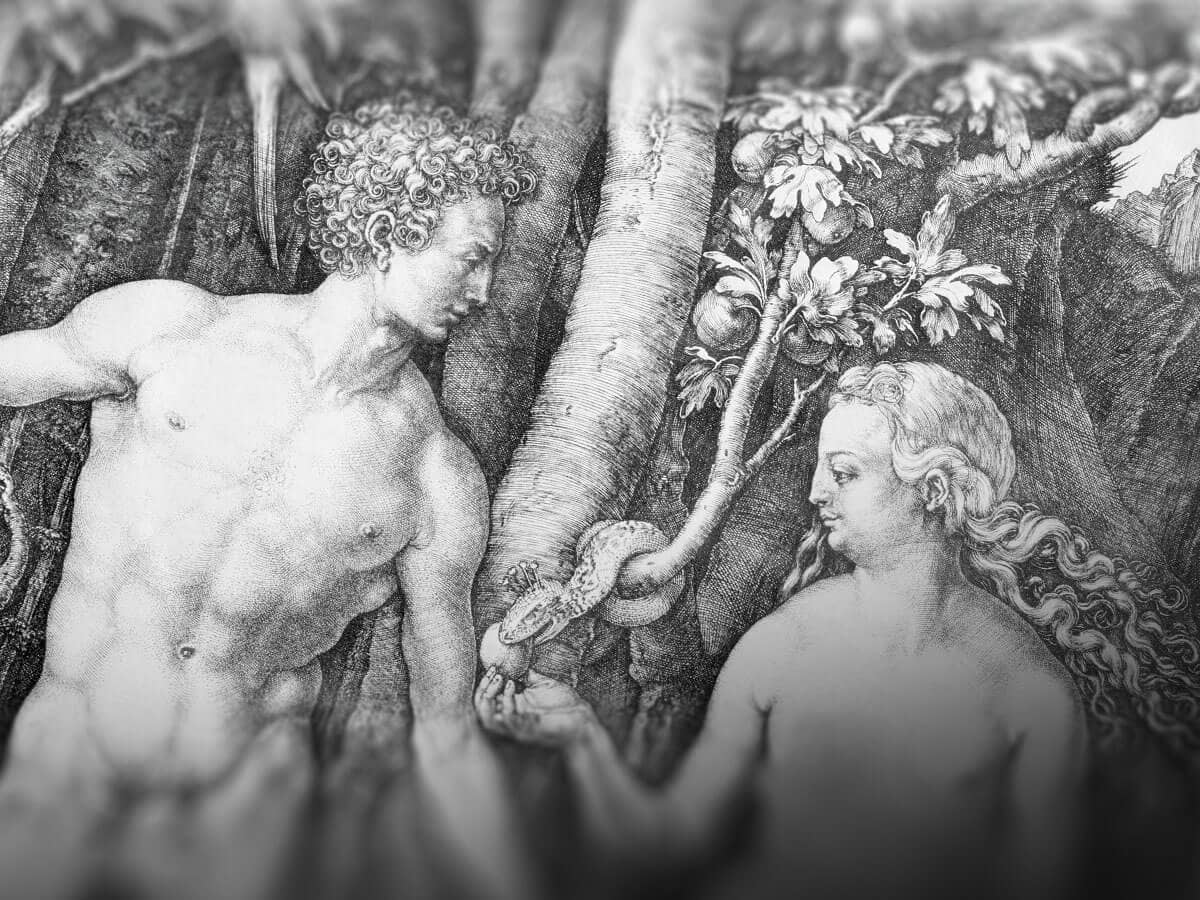I know from Kabbalah that whatever is born--whether it is the birth of a child, the birth of the next moment, or the birth of the cosmos--emerges from a shattering and is damaged in some way. We can read the story of this imperfection in the Torah, in human history, and in our lives. It is the same pattern on different scales: a withdrawal of meaning into the mystery of itself, followed by a terrible shattering of whatever inadequate vessels we have gathered to hold meaning, followed by the effort of repair. This is the pattern in our lives over and over again--it is the thumbprint of creation pressed into every moment.
I know that the first phase of creation, the initial withdrawal of meaning, gives us the freedom to make our own meaning, along with our own errors. This freedom also enables us to go back to the beginning and make a repair. In many ways our duty as human beings is to see what needs fixing, to adjust what is imperfect, and to seek to make it better. This is called tikkun--repairing--and it happens on many levels. On the physical level, tikkun is healing. On the political level, tikkun is a fight for justice, freedom, and dignity for all human beings. Tikkun on the spiritual level is focusing our intention with every prayer and every good deed. These levels of tikkun are all part of one effort.
I know from Kabbalah that God is hidden. I know that this is for a reason and is part of the mystery of creation, and of creativity. I know that the language Kabbalah uses to talk about God is necessarily obscure, not just accidentally obscure. And that understanding why it is necessarily obscure also explains why there is evil in the world, and imperfection all around. I know that our search for God involves names that are wrong, and that the process of lifting the veils is the same as the process of learning how the names are wrong, and learning the right names. We ourselves shatter and ruin the names of God by the way we use them. Only through a shattering of ourselves and the names we use for ourselves can we get a glimpse of the actuality behind the names of God.
I know from Kabbalah that we who live in time and space dwell in the world of doubleness and duplicity. This is encoded in the first letter of the Torah, the letter Beth, which stands for the number two. And I know indeed that every letter of the Torah, if read properly, has a secret. The Torah itself is not just a book of stories or of laws-- though it is also that--but it may be read with such a deep reverence for its particulars that a whole new revelation of wonder is exposed. In "The Gates of Light" by Joseph Gikatilla, for example, we see that every word in Torah is connected to a particular name of God.
I know that the reading of Torah and Bible that we have inherited from the 19th century "higher criticism" is less interesting and perceptive and whole than the reading of Torah we get from a kabbalist like Gikatilla of the 13th century- and I feel humbled. The kabbalists saw the same seams in the text, and the same doubling and "errors" as the logical analysts who split the text into strands of J, E, P, and D- according to the God names they found used there (YHVH for J, Elohim for E, and so on..). but gave it a reading that healed the splits, and gave the work a unity and power no analyst could imagine. And I know then from Kabbalah that the soul of Torah is deeper than analytics, and that a text is not only a play-thing of the mind, but can be a guardian of soul and an opener of the heart. I know that the scholarly intellectual way of reading Torah so common today only breaks the text down into bits, and that there's a deeper way of reading: a way that performs a tikkun on the text, and finds the light hidden in the text. I know this from Kabbalah.
People today are also meditating on creation. Some are doing it in prayers and synagogues, others in the laboratories doing stem cell research or accelerating particles in a cyclotron. And certainly we are making spiritual journeys and hoping to find an adequate language to describe what we have experienced, as the kabbalists found.
Now if people still were to ask, 'All right, but, what is Kabbalah?,' expecting a certain kind of historical answer, let them look in the books of the great scholars, such as Gershom Scholem, Moshe Idel and Joseph Dan. From the scholars they will know that Kabbalah is a textual mysticism, a hyper-midrash or super-commentary, using a set of symbolic relations known as the sefirot. The ten sefirot--ten aspects of the hidden one--provide a skeleton key for reading Torah. The Torah itself is seen as one long name of God, not a book of stories or laws at all.
The best answer to the question, 'Where does Kabbalah come from?,' I heard from Rabbi Zalman Schachter-Shalomi, the most creative kabbalist I've personally encountered. He told me simply and stunningly, and with a bit of mystery, "Where does Kabbalah come from? It comes from the future."

